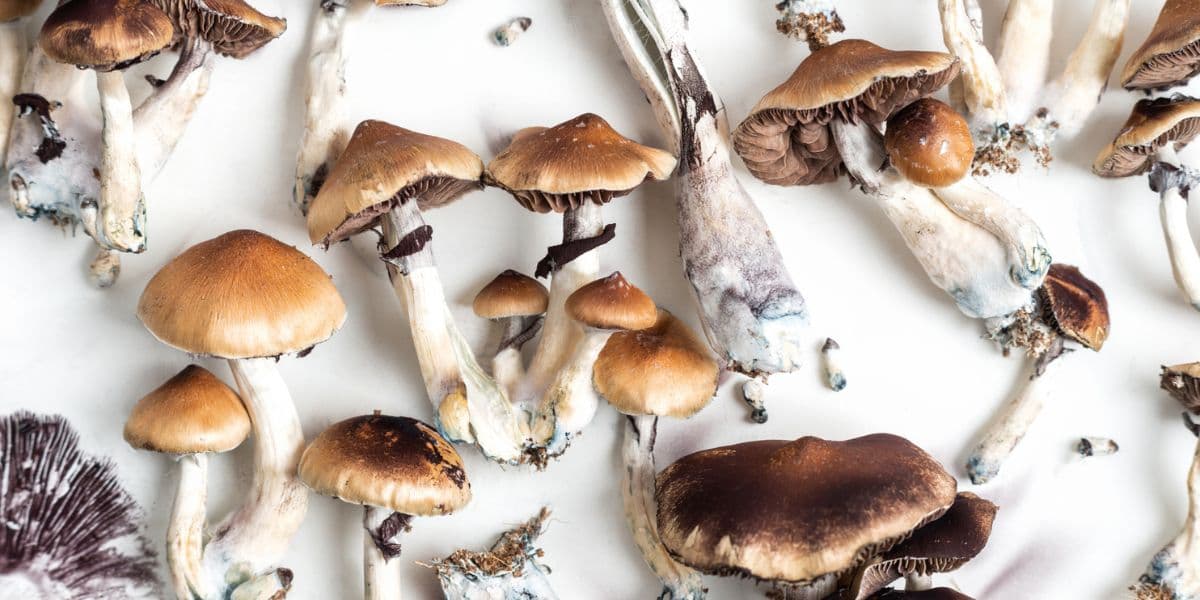“Magic Mushrooms,” Psilocybin and Mental Health

Magic mushrooms contain psilocybin, a substance that is illegal in the United States. This is because it can be easily abused and has no recognized medical benefits.
What Is Psilocybin?
More than 200 types of mushrooms contain the substances psilocin and psilocybin. These types of fungi, commonly known as mushrooms, are prevalent in regions stretching from South America to Mexico and certain parts of the United States. They bear resemblances to other hallucinogenic substances such as mescaline peyote and lysergic acid diethylamide (LSD). These compounds are often misused for their mind-altering effects, typically resulting in an experience referred to as a trip.
Psilocybin was labeled a Schedule I drug in 1970. This classification was based on worries about its potential for abuse. There were also concerns about its lack of medical use. Recent studies indicate that minor amounts of psilocybin may be useful in handling depression when integrated into treatment methods.
How to Use Psilocybin Magic Mushrooms
Magic mushrooms are taken orally— either consumed directly, ground into powder, encapsulated, baked into foods, or brewed as tea.
Mushrooms are commonly consumed in their dried form, often combined with other ingredients to mask their bitterness. They can also be eaten fresh. Typically, dried mushrooms exhibit a rusty brown color interspersed with white spots.
Liberty Caps are a favored variety of psilocybin mushrooms consumed for recreation in North America and Europe. In Canada, psychedelic mushrooms are typically used in certain experimental contexts.
An abundance of rainfall in British Columbia leads to the proliferation of magic mushrooms. These fungi have integrated deeply into the cultural fabric of the region. Individuals from diverse societal backgrounds utilize them for leisure or occasionally for spiritual journeys.

Medical Uses for Psilocybin
The preliminary medical studies on psilocybin focused on addressing anxiety and depression in individuals with cancer. The results showed that psilocybin considerably lessened the existential anguish experienced by those diagnosed with cancer. These discoveries suggest that psilocybin could possibly assist many individuals grappling with severe depression.
A study carried out at Johns Hopkins University involved 24 individuals battling persistent depression who received psilocybin therapy in two doses. Over half of the participants were no longer classified as depressed a month post-treatment. Some individuals experienced a minor increase in heart rate and blood pressure after the doses. However, a week later, 67% of them reported reduced anxiety and an improved mood, as per the study.
Further studies carried out by Robin Carhart Harris explored the beneficial impacts of psilocybin. He delved into how this substance decreases brain flow and how such a response could assist in the therapy of specific mental health conditions. His research showed that psilocybin can improve well-being and reduce symptoms of depression and cluster headaches.
Effects of Psilocybin
The hallucinogenic impacts of psilocybin usually start between 30 minutes post-ingestion and generally persist for roughly 6 hours. However, in certain instances, they may extend up to 12 hours.
Psilocybin’s effects are similar to those of other hallucinogens, causing visual and auditory distortions and significant alterations in perception, thinking, and emotions. People can see images, feel emotions, and hear sounds that aren’t real, blurring the line between what is real and what is not.
Apart from hallucinations, psilocybin also induces the following effects:
- Decreased hunger
- Dryness in the mouth
- Difficulty in falling asleep
- Excessive sweating
- Unusual behaviors
- Intensified emotional reactions
- Altered perception of time
- Increased self-reflection
- Feelings of tranquility
- Spiritual experiences
Long-Term Effects
Long-term effects associated with psilocybin mushroom use include persistent mental health issues, with symptoms such as:
- Doubt and skepticism
- Disordered thinking
- Changes in visual perception
- Fluctuations in emotional condition
A common long-term effect is flashbacks. These are repeated experiences similar to hallucinations. They can include visual disturbances that happen after using the drug.
Hallucinogen-persisting perception disorder (HPPD) is a disorder that can develop days or even a year after taking the drug.
Psilocybin Physical Effects
Common physical responses to psilocybin encompass sensations of sickness, episodes of throwing up, cognitive disarray, muscular weakness, and impaired coordination. Additional possible physical consequences might include:
- Chills and perspiration
- Dilated pupils
- Loose stools
- Stomach cramps
- Vertigo and a sense of faintness
- Elevated pulse, body heat, and blood pressure

Risks of Psilocybin Use
There is a notable difference in psilocybin levels in grown mushrooms, indicating inconsistent doses when used illegally. Research on samples collected from the streets has revealed that the amount of psilocybin can differ significantly.
Taking a lot of magic mushrooms can lead to a bad trip. This experience can be strong and frightening. It may cause panic, confusion, and disturbing visual effects.
Additionally, eating the wrong mushrooms can be dangerous, especially if they are poisonous and mistaken for psilocybin mushrooms.
Psilocybin Addiction Treatment at Northridge Addiction Treatment Center
Although psychedelic mushrooms typically do not cause physical or mental dependency because of their low-reinforcing effects, they can still be abused. Some users may appear detached from reality even after the effects of the drug have worn off, suggesting potential mental health issues from prolonged use.
Should you have suspicions that you or someone close to you may be grappling with an addiction to psilocybin mushrooms, Northridge Addiction Treatment Center (NATC) offers a complimentary and private consultation.
At NATC, we offer a dual diagnosis program that uncovers mental health issues often hidden beneath addictions. Our team of addiction experts craft individualized treatment strategies to manage these co-occuring disorders.
The comprehensive treatment plans at NATC could be your initial move toward tranquility. Reach out to us today to converse with a sympathetic admissions specialist.
Find Meaningful Recovery
Our caring and compassionate specialists are eager to help you comfortably navigate this journey to recovery. Our individualized treatment plan, programs, and therapies may be a perfect match for you or your loved one. Let us assist you in living the happy life you deserve. It starts with a phone call.




